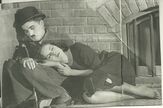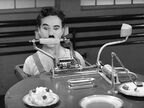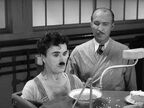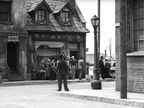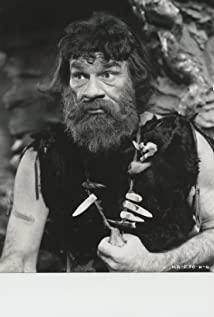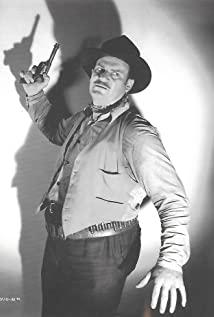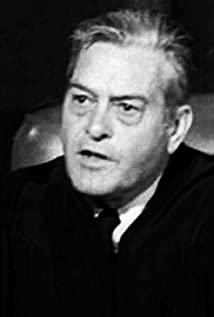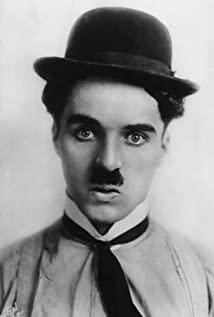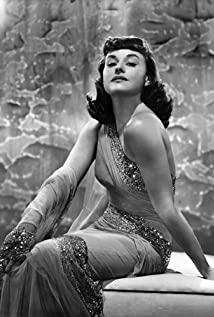"Modern Times" is a silent film directed, written, and starred by Charlie Chaplin. It was released in the United States on February 5, 1936, and became one of Chaplin's masterpieces. The film is also considered to be an American film. One of the greatest films in the history of cinema. It mainly tells the story of a factory assembly line worker in an industrial society who worked endlessly in the factory until he became mentally ill and was later mistaken for the leader of the workers' riot and sent to prison. The absurd plot made him enter and leave prison several times. Because he was penniless, he was forced to commit a crime on purpose in order to be sent to prison, and then he met the wandering heroine and fell in love. The heroine recommended him a job, but the good times did not last long, and the two eventually escaped together.
Spicy and sharp satire, superb acting skills, a warm and touching love story with human radiance, make this film still glow with immortal charm. This film went beyond a purely tragic theme and dared to touch on the social ills of the time. It was regarded as a dangerous work by American right-wing politicians with a certain "red communist tendency". The social phenomena shown in the film are: the conflict between man and machine; the conflict between the masses and the elite; the living conditions of laborers and their longing for life. At the beginning, the shot of the flock cuts to the crowd rushing to work, implying that the laborers are equal to the sheep that are left to be slaughtered.
In the clip about the factory work, Chaplin is caught in the gears but still works mechanically, which reflects the oppression of the capitalists. abusive mockery. This period has been described by some sociological scholars as the dividing point where human beings entered mass society. Some "elites" in society at that time claimed that "the masses" were "a group of thugs with an atomic structure that ignores reason and law." The rise of the "masses" will lead to the oppression of a few rational and creative social elites, thereby causing moral decadence and national loneliness. In the film, Chaplin has the same physical condition after drinking the same drink as the minister's wife, who came to inspect him after he made a contribution to the prison, implying that although people have different social status, they are all equal. The plot of the whole film revolves around Chaplin's unemployment and job hunting, which reflects the difficult living conditions of ordinary workers at that time.
Chaplin's vision for a better life after falling in love with the heroine is based on the premise of an abundance of food. At the end of the film, the two men embarked on a road of escape, and Chaplin encouraged the heroine: "Cheer up, don't give up easily, everything will be fine!" It also brings us a glimmer of hope. Chaplin wrote, directed, performed, and scored his own music in a humorous, exaggerated, and bitter drama style to describe the film, and paid attention to the fate of the little people. He integrated humanitarian spirit and social criticism into the comedy plot, making the work generally funny. Purpose comedies have a depth of thought unattainable. The poet Aragon, the Soviet film master Eisenstein praised him: "Chapplin helped everyone see a new era of our time."
View more about Modern Times reviews



